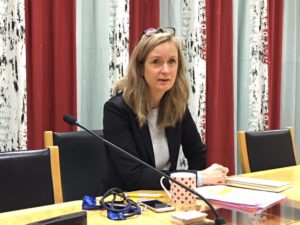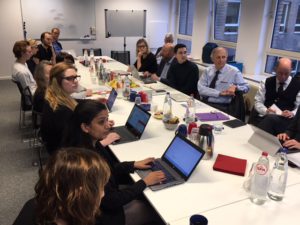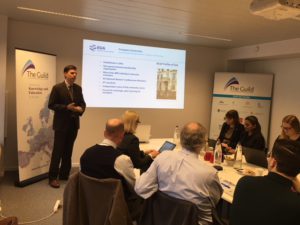(Original Swedish post published 21 February.)
A few times a year, we as a university (and public authority) communicate formally with the government. One of these occasions is the annual report, when we report on how we have responded to the tasks given us in our appropriation directions, another is the budget documentation in which we present a forecast for the coming years along with the University’s considerations and budget requests. Both these documents are adopted by the University Board at its February meeting, which was held today.
The annual report summarises the past year in nearly 100 pages of text, tables and figures. A few samples of the contents:
Last year the University had 42,549 students. We admitted the first students to the preschool teacher education programme at Campus Gotland. A total of 5,391 students took degrees and are now moving on to jobs or further studies and research. More than 800 students came to Uppsala from non-EU countries and paid tuition fees. The new system of quality evaluations for educational programmes got off the ground, with ten of the University’s programmes conducting pilot evaluations.
Last year we also carried out Quality and Renewal 2017 (Q&R17) – a major review of all our research environments. The results are now being digested and acted on at all levels of the University. The University’s researchers published more than 6,000 articles and books. Uppsala University secured EUR 18 million from the EU’s research programme Horizon 2020. Since 2014, 57 of the University’s researchers have received prestigious grants from the European Research Council (ERC), and several researchers have won similarly prestigious Wallenberg Academy Fellows awards.
The rapid expansion of recent years continued, though at a more moderate pace. Turnover is approaching SEK 7 billion (an increase of SEK 800 million over the past five years), and the number of staff is approaching 7,000. However, in some areas developments are slower than we would like. The proportion of professors who are women is creeping up but is still too low, at 29 per cent.
In the budget documentation we look ahead. Some of the issues the University particularly highlights are the need for increased basic appropriations for research and higher (restored) compensation per student in educational programmes; the difficulties of finding enough practice placement opportunities in certain programmes; the need for a national scholarship fund for third country students; and of course the issue of guaranteeing universities’ autonomy and freedom of action, and the freedom of research and education.



